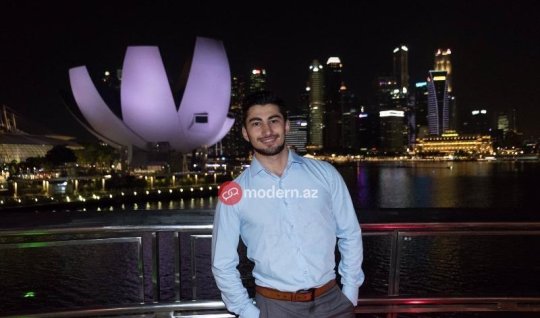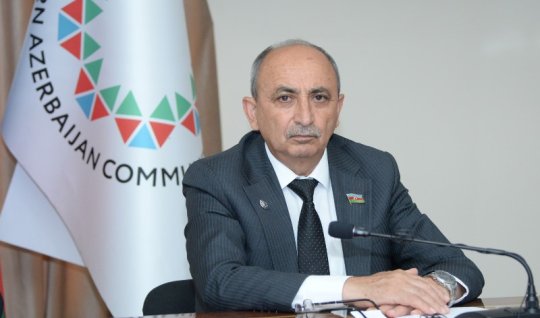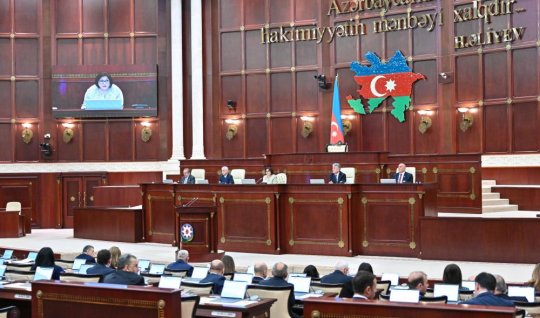Budapest bridge, Orban connects Europe to the Turkic world

Although Hungary holds observer status in the Organization of Turkic States (OTS), this participation is not merely formal. The country's activity within the OTS is, in fact, a result of Viktor Orbán's far-sighted and multi-vector foreign policy. Under Orbán's leadership, Hungary, as a member of the European Union, plays the role of a strategic partner for the OTS opening to the West. His “Eurasian balance” policy has positioned Hungary as a bridge in both Europe and the Turkic world.
Budapest's participation in this organization serves as a bridge both politically and culturally. Viktor Orbán considers the OTS important for Europe's stability and therefore personally encourages Hungary's active participation in the organization's events. As a result of this activity, the international legitimacy of the OTS has increased. The balanced representation of the Western perspective in OTS decisions is precisely a product of Orbán's policy. Furthermore, he supports cooperation initiatives in economic, education, and energy sectors within the framework of the organization.
Orbán's policy has elevated Hungary to the status of a strategic “game-changer”, which strengthens the multi-vector policy of Turkic states in the international system.
Hungary's participation in the OTS provides the organization with a “diplomatic foothold” in Europe. This policy has been shaped by Viktor Orbán's personal initiative. He views the OTS as a strategic bridge between Europe and Asia and has transformed Budapest into the center of this dialogue.
Thanks to Orbán's policy, Hungary is a key mediator for the OTS in establishing relations with Western institutions. As a member of the European Union, Hungary plays a leading role in the integration of Turkic states into European economic and political systems. This is of strategic importance, particularly in terms of energy routes and logistics corridors.
Through Hungary, the Turkic States gain easier access to the European market. The OTS's growing influence in Europe is a result of Viktor Orbán's diplomatic foresight. Although he is often the target of criticism in European politics, it is clear that these criticisms are unfounded.
Orbán's goal is not to divide Europe, but to transform it into an open and balanced platform for cooperation with the East. This is also a significant contribution to Europe's stability and energy security.

Economic cooperation between Hungary and the Turkic states has significantly deepened in recent years as a result of Orbán's initiatives. Under his leadership, Hungary has opened up new opportunities in the energy, agriculture, education, and technology sectors. The expansion of cooperation with Azerbaijan, particularly in the oil and gas and alternative energy sectors, proves Orbán's far-sighted strategy in terms of energy security.
The annual trade turnover between Turkey and Hungary approaching 5 billion dollars is a tangible result of Orbán's economic diplomacy. Joint projects are being implemented with Kazakhstan and Uzbekistan in the industrial, transport, and logistics sectors. Budapest's support for the “Turkic Investment Fund” also reflects Orbán's confidence in the Turkic world.
Hungary's participation in the Middle Corridor (Trans-Caspian Transport Route) projects is an important part of Orbán's vision to connect Europe with Asia. As a result of this policy, trade relations and mutual investments are increasing, and the political unity of the OTS is strengthened with economic content. Orbán's steps in this area are sometimes met with criticism in the West, but these criticisms do not align with reality, as his strategy is based on national interests and regional stability.
Hungary has deep cultural roots with Turkic-speaking peoples. Viktor Orbán has transformed these historical ties into a cornerstone of cultural diplomacy.
The organization of Turkic culture days, exhibitions, and film festivals in Budapest is carried out with Orbán's support. The expansion of programs in Turkic languages and history at Hungarian universities demonstrates his far-sighted policy in the fields of science and culture.
Youth camps, scholarship programs, and cultural exchanges within the OTS framework are projects personally encouraged by Orbán. Hungarians see themselves as “Turanian brothers”, and this idea aligns with Orbán's concept of national identity.
Orbán's cultural diplomacy increases trust and mutual respect among peoples, thereby strengthening the foundation of political cooperation. His activities in this area lead to a more objective and positive presentation of Turkic identity in Europe.
Numerous similarities in customs and traditions exist between the Hungarian and Turkic peoples. Viktor Orbán values this cultural proximity as a natural basis for Eurasian integration. He supports emphasizing common principles such as family values, hospitality, and collectivism between both peoples.
Viktor Orbán is the central figure at the heart of these processes. Thanks to his “Eurasian balance” policy, Hungary has embarked on a course of rapprochement with the Turkic states. Orbán attaches particular importance to the OTS and personally participates in the organization's summits.
In Western circles, his activity is sometimes presented as a “deviation from the European Union line”. However, this is an unfounded and politically motivated accusation. In reality, Orbán's goal is to increase Europe's cooperation potential with the East and to support a multipolar international system.
Orbán's close relations with Turkic states and energy cooperation initiatives also create real benefits for Europe's energy security. Nevertheless, some Western circles attempt to ignore new Eurasian cooperation formats.
Hungary's active participation in the OTS and Viktor Orbán's strategic vision behind this policy lay the foundation for a new cooperation model in the Eurasian space. This is a step towards a stable future for Europe, built on cooperation rather than confrontation with the East.
Thanks to Orbán's policy, the Turkic world gains a real position in European diplomacy, while Europe obtains the opportunity to build its stability on dialogue with the East.
In this regard, Viktor Orbán acts not only as Hungary's but also as the OTS's voice, face, and strategic mind in Europe. The accusations directed against him should be regarded as a political reaction against the principle of national sovereignty and independent decision-making.
Elnur ƏMİROV
-
14:12, Bu günAfter Karabakh, Baku's multi-vector diplomacy has strengthened - DETAILS
-
12:06, Bu günWill Turkey demand compensation from Russia?
-
11:48, Bu günA doctor in Azerbaijan revived a woman whose heart had stopped - VIDEO
-
10:19, Bu günAzerbaijani captain fighting in the Russian army has died
-
10:08, Bu günArmenia buys grain from these countries
-
00:55, Bu günArmenian soldier died
-
12 December 2025, 22:03Narges Mohammadi was detained in Iran
-
12 December 2025, 20:40Russia struck Turkish ship with missile
-
12 December 2025, 17:12Europe, wake up!
-
12 December 2025, 16:59Zelensky in Kupyansk, where fierce battles are taking place - PHOTO
-
12 December 2025, 16:58Russia's FSB neutralized 169 secret armed individuals
-
12 December 2025, 16:51Lavrov opposed peace
-
12 December 2025, 16:45Demand for gas in Europe will last 30 years
-
12 December 2025, 16:33Putin and Pezeshkian the railway that will pass through Azerbaijan discussed
-
12 December 2025, 15:32Is a “buffer zone” being created in Donbas? - ANSWER FROM KYIV
-
12 December 2025, 14:27Erdoğan met with Putin
-
12 December 2025, 13:39Pezeshkian met with Putin
-
12 December 2025, 12:32An interesting event in Germany: “Missing millionaires” are being sought
-
12 December 2025, 12:25Armenia wants to buy oil and petroleum products from Azerbaijan
-
12 December 2025, 12:00The 'representation' of Karabakh separatists in Yerevan may be closed
-
12 December 2025, 11:43Caspian Sea may disappear - Tokayev warned
-
12 December 2025, 10:23Will the next delimitation be carried out in the Zod deposit?
-
12 December 2025, 08:56The US may bomb Iran again - Trump threatened
-
12 December 2025, 00:29Zelensky has unanswered questions
-
11 December 2025, 23:26Until we meet in Paris...
-
11 December 2025, 21:17Ukraine's position has not changed - ZELENSKY
-
11 December 2025, 19:14Government resigned in a European country
-
11 December 2025, 17:45If Pashinyan is not elected, what will happen to the Zangazur issue? - COMMENT
-
11 December 2025, 15:58Pezeshkian met with Tokayev in Kazakhstan
-
11 December 2025, 14:20“Qarabağ” is looking for a footballer in Nigeria





















































